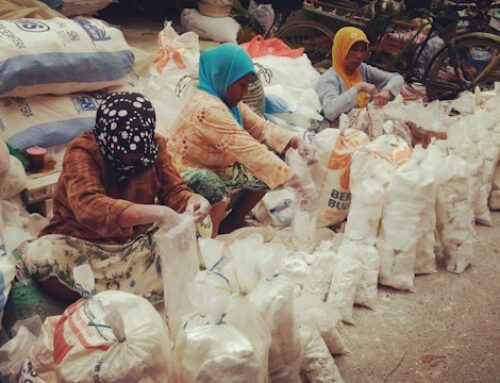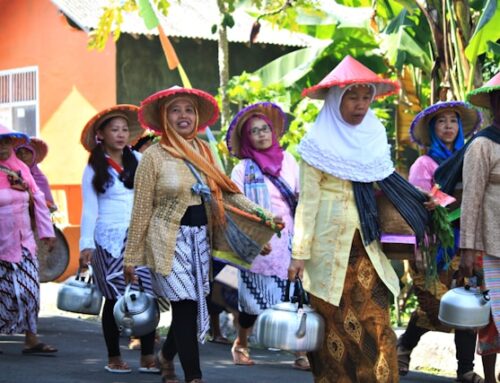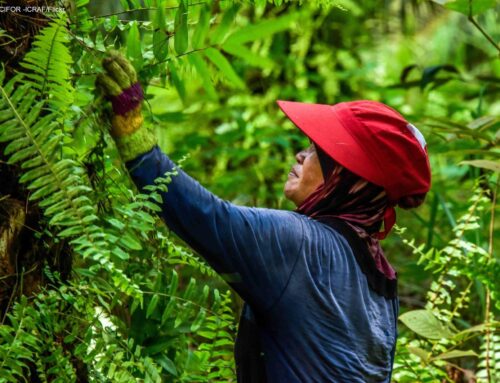Angka morbiditas dan mortalitas ibu, bayi baru lahir, dan anak yang masih tinggi di Indonesia merupakan hal yang perlu mendapat perhatian besar dari pemerintah dan akademisi. Salah satu sebabnya adalah kesenjangan pelayanan kesehatan dan kesulitan dalam mengakses layanan bagi ibu, terutama layanan pasca melahirkan di daerah pedesaan. Kondisi geografis Indonesia memberikan tantangan tersendiri untuk menyediakan layanan kesehatan berkualitas tinggi bagi perempuan dan anak-anak. Bahkan ada penelitian yg melaporkan bahwa lebih dari 50% perempuan Indonesia dilaporkan menderita penyakit saat hamil (maternal morbidity) namun hanya 80% darinya menerima layanan kesehatan.
Dalam acara ini kita akan berbincang dengan dua akademisi tentang penelitiannya di bidang kesehatan ibu pasca melahirkan. Topik pertama membahas tentang pelayanan pasca melahirkan bagi ibu dan anak dgn menggunakan data Survei Demografi dan Kesehatan Indonesia tahun 2017 yg mencakul lebih dari 14,000 responden. Topik kedua membahas tentang upaya memberikan ASI ekslusif selama 6 bulan dan dampaknya dari sisi biaya sosial dan ekonomi bagi ibu, termasuk dari sisi kesehatan mental. Acara ini akan dipandu oleh Tri Mulyaningsih, PhD (Universitas Sebelas Maret)
Topik 1. Discontinuity of the maternal and child cascade of care: evidence from Indonesian Demographic and Health Survey
Vitri Widyaningsih, PhD (Universitas Sebelas Maret)
Lack of maternal and child health services lead to the maternal and infant mortality problems. The cascade of care for pregnant and postpartum women must be carried out, starting from antenatal care throughout delivery and beyond. Therefore, this study aimed to assess maternal and child health continuity using a cascade-of-care approach. The researchers analyzed data from the latest Indonesian and Demographic Surveys (IDHS) 2017. The sample of this study was 14,398 mothers. The cascade of care was then analyzed descriptively, covering all indicators of the continuum of care for maternal and child health on an ongoing basis, including antenatal care (ANC 4 visits or more), skilled birth attendant (SBA), facility delivery (FD), postnatal care (PNC1 means receiving medical attention in less than 2 days after delivery and PNC2 within 28 days after delivery), family planning (FP), and immunization.
Topik 2. The financial need of feeding infants for the first six months of life in West Java Province of Indonesia and the implications of socioeconomic and mental health factors
Riki Relaksana (Universitas Padjadjaran)
In Indonesia, nearly half of all children aged less than six months were not exclusively breastfed in 2017. This study aimed to compare the cost of providing direct or indirect exclusive breastfeeding 0–6 months, partial exclusive breastfeeding and commercial milk formula only. This study also assessed the maternal socioeconomic and mental health factors to providing exclusive breastfeeding. Data were collected in 2018 via a cross-sectional survey of 456 mothers in Bandung City and Purwakarta District, West Java Province, Indonesia, who had children aged less than six months. We used micro-costing to calculate the cost of productivity, equipment, supplies, and training of mothers when providing direct exclusive breastfeeding, indirect exclusive breastfeeding, partial exclusive breastfeeding (a mix of breastfeed and commercial milk formula), and infant formula/commercial milk formula only. Logistic regression was used to determine the impact of several independent variables, including mother’s level of depression, on exclusive breastfeeding.
Topik 3. Pola makan, status gizi dan PMT lokal ibu hamil dan balita
Profesor Dewi Marhaeni Diah Herawati,
Rabu, 21 Februari 2024 jam 10.00-11.30 WIB (daring dalam Bahasa Indonesia di Zoom dan Instagram Live)
Registrasi: bit.ly/fkp2102
Thumbnail photo by Muhamad Harun Rabiyudin on Unsplash
Slides and video for past seminars:




